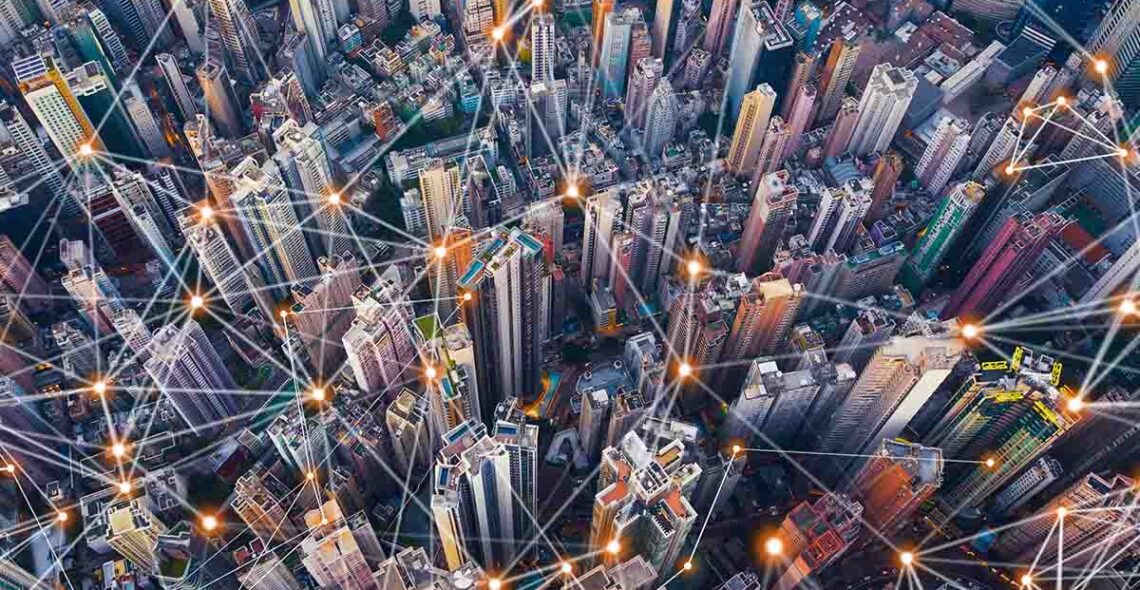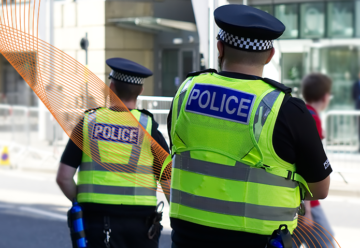There is no doubt that smart city technology is increasingly being factored into urban planning. Confronted with ever-increasing populations, cities around the world are striving to make urban areas more liveable, in easily scalable ways. For many local authorities, investing in forward-thinking smart technology is a great source of pride, and there is often competition among cities to implement the most innovative solutions.
During pandemic lockdowns, it’s become clearer than ever that everyday human activity has an immense impact on the natural environment. Greatly reduced emissions and office energy demand gave nature a chance to breathe and inspired a new push for sustainability. Smart city planning will certainly benefit from this increased appetite for eco-friendly initiatives and ideas.
But as much as public sentiment is turning in their favour, smart cities are still in their infancy and governments and authorities attempting to get them off the ground still face a raft of challenges.
Where are the roadblocks?
As the Smart Cities Lead for Leeds City Council, one of the fastest-growing urban areas in the UK, Stephen Blackburn is familiar with the obstacles.
He says: “One of the key challenges we need to overcome is finance. Investment into the use of new technology needs to be made, which will enable a switch from traditional, often people-based processes. Because of this, winning over ‘hearts and minds’ will be essential – with both staff who may feel threatened by new technology and customers who may be wary or less tech-savvy.
“A human-centred approach is required. We need to increasingly involve members of the public and users from the outset to co-design and produce solutions – this will increase the likelihood of take-up.
“We should also bear in mind that in a world dominated by the likes of eBay and Amazon, customer expectations of how they request and have services delivered, are constantly increasing.
“Of course, we also have to be innovative, co-designing solutions that address city challenges, test and trial new technologies in safe environments, and generally accept a fail-fast culture.”
What are the answers?
Leeds is making some impressive progress in its smart city efforts. A notable example is the Careview app, which develops heat maps of social isolation hotspots by collating reported signs of potential loneliness such as piles of rubbish or post.
Travel also features prominently in Leeds’ smart initiatives. The council is investigating how sensors can be used to advise drivers of parking spaces, while traffic lights are being rebalanced to favour sustainable modes of transport and three local urban traffic management systems are being consolidated into a single, cloud-based system.
Blackburn sums up Leeds’ collaborative approach: “Local authorities act as the convenor, to bring relevant parties together. There needs to be a clear strategy as to what the focus of the city is over the next five to ten years, and who are the partners and contributors that can assist in the delivery of it.”
Above all else, Leeds is concentrating on the benefits of open data and connectivity. Over 60 organisations share their data with the Data Mill North website, managed by Leeds City Council. While real-time data on air quality will be used to encourage more environmentally friendly habits in citizens.
In terms of connectivity, the council is ensuring residents have access to the fastest and cheapest broadband possible, as well as introducing free Wi-Fi to community buildings. Leading this charge towards total connectivity, Blackburn is well aware of the importance of the underpinning dark fibre networks. He says: “The infrastructure needs to be future-proofed. For example, facilitating the roll-out of gigabit fibre broadband that can support the delivery of 5G, which in turn supports the delivery of enhanced services.
“As technology progresses, bringing with it increased automation, it’s important that the infrastructure is already in place to facilitate its roll-out. 5G will revolutionise our lives in the future: how we deliver and access services and how we travel, for example. Therefore it’s important that as a nation we are not left behind and build the infrastructure today.”
What’s next?
As Blackburn says, 5G will have a huge impact on people’s lives, particularly in its support of the Internet of Things (IoT). Some of the changes will be highly visible: autonomous cars, robots in healthcare and highly advanced augmented reality. Other technologies will play a much more understated role, with everything from smart bins to parking apps quietly making our everyday activities easier and easier.
But what experts like Blackburn get really excited about is what 5G and greater connectivity means for data – and what we’ll be able to do with that data.
“As we collect more data, we’ll be increasingly reliant on machine learning and artificial intelligence to help us better understand it. This may be a slow transition as we will need to assure ourselves that the data is correct and that the recommendations the system is producing are accurate and what we would expect to see. End-to-end processes could also become increasingly digitised, for example with systems automatically instructing tradespeople to carry out remedial work on properties without any human intervention in between.
“Digital and data ethics will become an increasingly important issue, for example with machine bias potentially leading to decisions being made that exclude certain individuals or communities. These may not be realised until it actually happens, but we need to be mindful and mitigate wherever we can.”
However, before cities can even contemplate using big data, they need to invest in the prerequisite core connectivity. 5G and other networks need this foundation to make IoT connections possible. For any cities that are serious about becoming smart cities, now is the time to invest in digital infrastructure. Otherwise, they risk being left behind in this exciting new stage of digitalisation, and to the detriment of their citizens.









